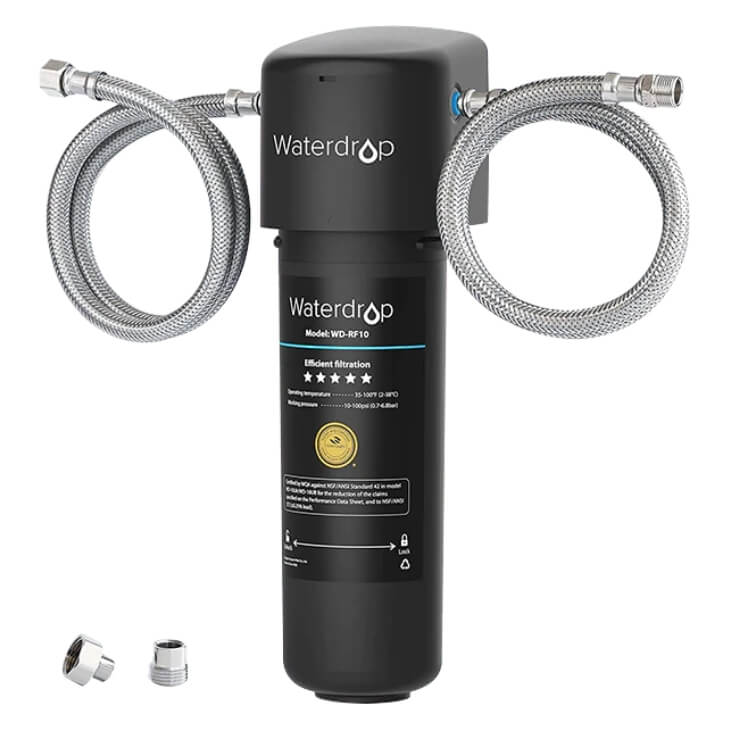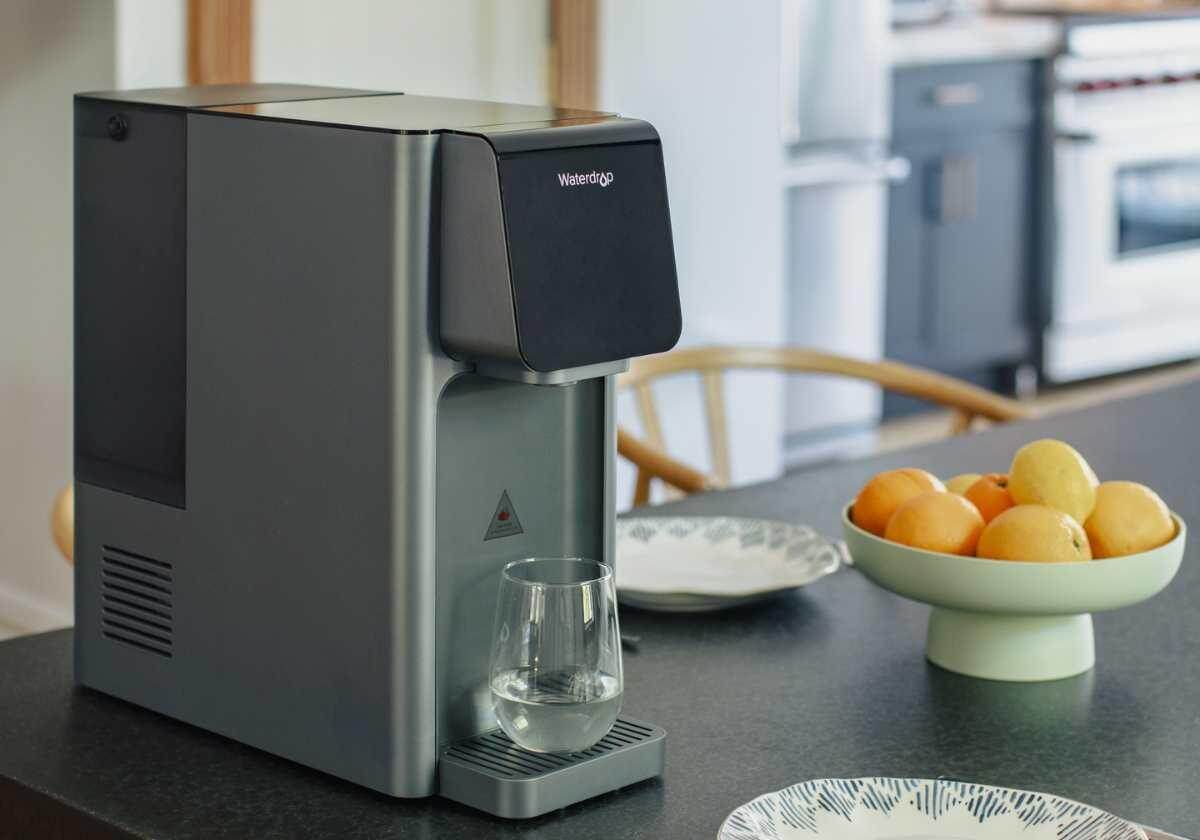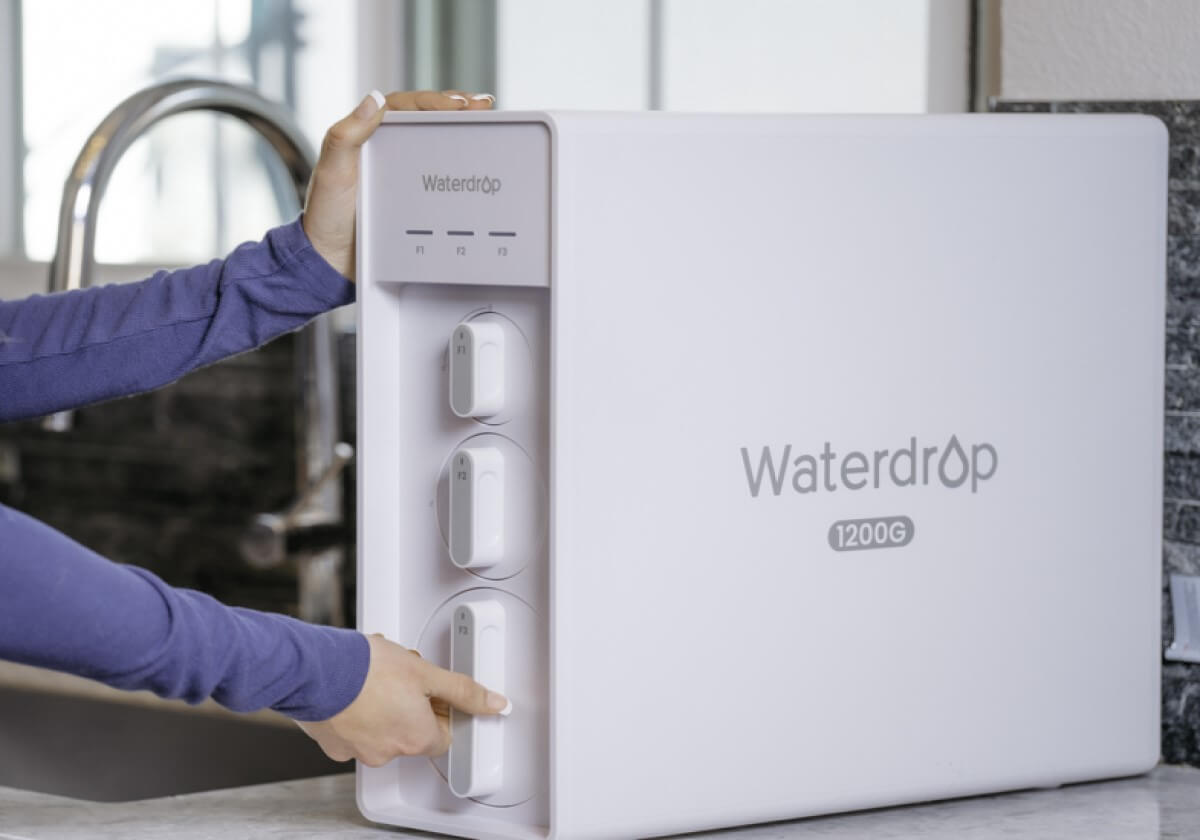Installing a water filter in your home gives an added layer of protection against contaminants and chemicals. Fortunately, different types of water filters will fit into your home, depending on your preference and budget.
But choosing a water filter goes beyond the fitting and pricing as you're tasked with selecting one that solves a specific problem with your water. Hence, you should have one that sits well in your home and ultimately solves your water problem.
While this decision might seem hard, it becomes easier when you understand the different types available. In this text, we give you a comprehensive breakdown of the different types of water filters, how they work, and if they're worth the cost and installation processes.
What Are Water Filters?
Water filters are purification systems that help to effectively rid water of contaminants, including bacteria, sediments, odour, heavy metals, and chemicals. They improve the physical properties of your water, making it safer for drinking, cooking, washing, and bathing. The different types of filters work using different mechanisms, such as a chemical, biological, or physical process/barrier.
Some filters are more effective than others, targeting specific contaminants and reducing sediment levels. Each filter and its efficacy is designed to solve varying degrees of water problems individuals encounter. However, the more complex a water filter system is, the more expense and maintenance you might incur during and after installation.
The Different Types of Water Filters
The following are the different types of water filters recommended for home usage, effectively removing contaminants and toxins from your water.
- Undersink water filters
- Countertop water filters
- Wholehouse water filters
- Reverse osmosis systems
- UV Water purifiers
- Gravity water filters
Next, I will expand on each type in detail.
Under-sink Water Filters
Under-sink water filters are one of the easiest water filtration methods due to their portability and minimal space requirement. They’re affordable and are said to be the “on-demand” water purifiers. This is because they're attached directly to your water line, which can be through your refrigerator or faucet.
As a filter will need to be connected to your faucet or refrigerator, you can use multiple systems throughout the house. They help remove contaminants effectively, and the degree to which they purify depends on the under-sink water filter type. You can get an under-sink water filter with a reverse osmosis system, a carbon water filter, or an ultrafiltration system.
Are Under-sink Water Filters Worth It?
Under-sink water filters have several advantages over other purification systems. These include their minimal storage space, water quality improvement, easy installation, affordability, eco-friendliness, and different models. Also, they're easily replaceable if you have problems with the system.
These filters target contaminants such as heavy metals, chlorine, and chloramine. As such, the water you want to purify should not have contaminants exceeding these.
For installations typically requiring a professional visit, it's worth noting that our Waterdrop products are designed for easy, DIY installation. Simple and convenient, our approach saves time and money, and you can enjoy the benefits of self-installation, ensuring you can set up your system quickly without the need for professional assistance.
Countertop Water Filters
Countertop water filters are simple and efficient machines that can be moved from one spot to another for water purification. The system diverts water from your sink faucet to the water housing filter. Typically, a countertop machine works with one faucet at a time, and you can move it from one place to another with its easy removal and installation process.
The Countertop water filter machine helps remove contaminants such as common scale deposits, bacteria, heavy metals, arsenic, chromium, residual chlorine, and organics. It also rids your water of bad odor and taste, eliminating traces of fluorine and other chemicals. Similar to the Under-sink water filter, you can have this system in different types, including a reverse-osmosis system.
Are Countertop Water Filters Worth It?
These filters come with a portability that lets you use them with virtually all faucets around the house. Depending on the type of Countertop water filter, it can add minerals to your water, including magnesium, calcium, and potassium. In addition, some countertop water filters can be connected to the fridge, which will treat and dispense fresh, clean water for you.
Countertop Water filters can be gotten for as low as $60 and higher with additional features. Maintenance is easy, but you might have to replace the filter cartridge for Three months or more. As with installation, this replacement can be done yourself or by a professional.
Whole-House Water Filtration Systems
These water purifying systems are designed to be connected to your private wells or main lines coming into your house. It purifies water before entering your home, eliminating contaminants like rust, sediments, manganese, iron, sand, odors, and cysts. The best whole-house water filtration systems for well water and main lines can be upgraded to include a UV filter, a pre-filter, a salt-free water conditioner, and a pro-grade bypass kit.
The mode by what type of water filter the system is made of. You can have different types like sediment pre-filters, carbon filters, and reverse osmosis membranes. Each filter should be selected based on the water problem you have.
Are Whole-house Water Filtration Systems Worth It?
This water filter system for home has a higher efficiency than the systems listed so far. It removes more contaminants, targeting cysts, iron, and manganese in your water. Depending on how complex your water problem is, you may not need frequent filter replacement.
Additionally, the average filter life is approximately one year. This installation will be done by a professional, and a high-grade system can cost about $500 or more. This installation will be done by a professional, and a high-grade system can cost about $500 or more.
Reverse Osmosis Systems
Reverse osmosis systems are some of the most efficient water filtration methods using a multi-step treatment process. It’s also one of the most expensive as it eliminates many contaminants, including radium, fluoride, copper, chromium, nitrates, arsenic, bacteria, and many more. These systems are perfect for complex water problems, and their top design and efficacy are reflected in their prices and installation process.
The system uses a high-pressure pump to force water out of a semi-permeable membrane, leaving dissolved salts (containing contaminants) on another part of the membrane. However, the system uses a large amount of water to achieve this filtration process, causing the process to be slow and your water pressure low. However, Waterdrop’s RO system has already achieved 1200 gallons per day, which is sufficient for a family’s drinking water needs.
Are Reverse Osmosis Systems Worth It?
Reverse osmosis systems for homes are highly efficient water purification systems, eliminating more contaminants than a whole-house filtration system. However, if you’ve wondered how much reverse osmosis systems cost, they’re quite expensive, ranging from $550 - $1,000. You should only consider this if your water problem is seriously bad. Maintenance can be expensive, and you'll need a professional for installation and repairs.
UV Water Purifiers
If you ask someone, “What types of water filters are available commercially?” the most likely answer you’ll get is these UV
water purifiers . They’re popular in homes and water industries, using varying frequencies of UV light to sterilize water. These purifying systems eliminate bacteria, viruses, pesticides, lead, and chlorine to give you drinkable and usable water.
Are UV Water Purifiers Worth It?
UV water purifiers are affordable, requiring low maintenance and infrequent lamp replacements. They're the go-to for water with microbe contaminants, costing about $400 - $500. Maintenance and installation will be done by a professional.
Which Water Filter Is the Best?
The best water filter you can get is the reverse osmosis system. This is because of its high efficacy in removing virtually every possible contaminant your water can have. However, due to its high cost and maintenance, you can explore alternatives that target a specific problem your water has.
Conclusion
At
Waterdrop , we have these types of filters in different models for you to select from. Our filter products come with reviews and ratings from past customers, so you can get first-hand information on what you’re putting your money on. Also, you’re guaranteed the best deals and discounts on high-grade systems like the reverse osmosis filter. Contact us for inquiries and make the best choice to keep your water clean today!






























































































































